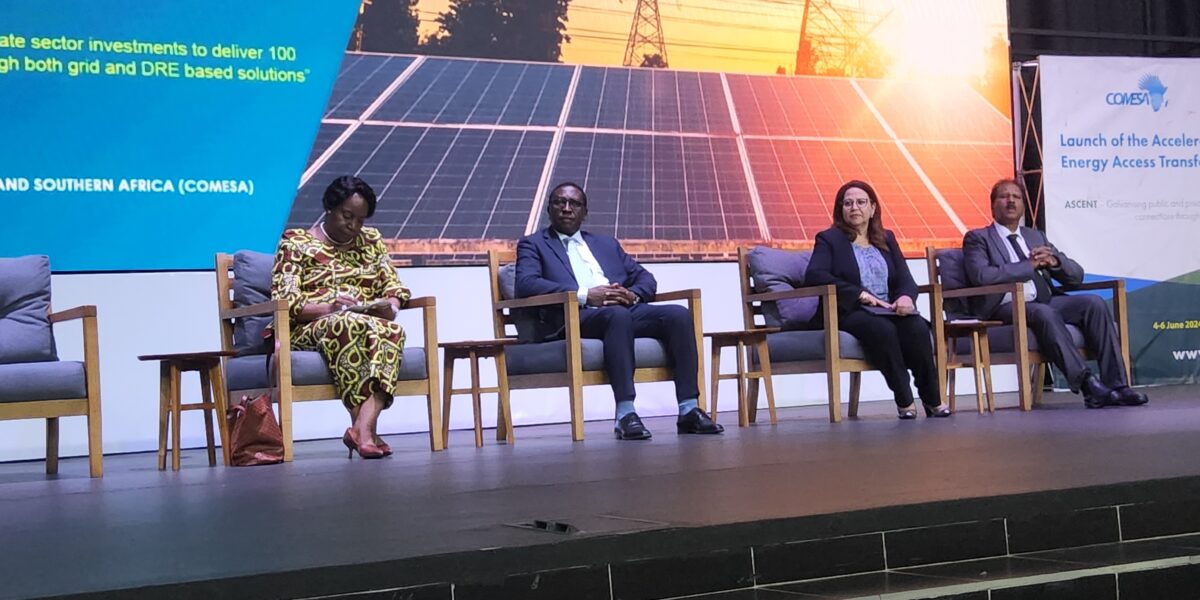By Ncaba Ntshakala
To address the critical energy access challenges in Eastern and Southern Africa, the Common Market for Eastern and Southern Africa (COMESA) and the World Bank have unveiled a regional platform with an investment of E949 million (US$50 million).
This initiative is a part of the larger E94 billion (US$5 billion) Accelerating Sustainable and Clean Energy Access Transformation (ASCENT) program, designed to provide sustainable energy solutions to 100 million people across up to 20 countries over the next seven years.
ALSO READ: World Bank to share more data to attract private investors to developing countries
The ASCENT program represents a significant step forward for a region where only 48% of the overall population, and a mere 26% in rural areas, have access to electricity.
Under COMESA’s supervision, the new platform aims to fill crucial technical gaps in the energy sector, focusing on project preparation, investment readiness, technical know-how, and expanding energy access.

COMESA’s Secretary General, Chileshe Kapwepwe, highlighted the importance of this initiative: “This is an African-owned and led platform to enhance project implementation and accelerate access to clean energy through the facilitation of knowledge exchange, project preparation, provision of advisory services, and support for policy development in a timely manner.”
Kapwepwe emphasized that the availability of clean, reliable, and affordable energy is essential for the region’s social and economic development and is crucial for advancing COMESA’s trade development agenda.
The platform will engage specialized firms and individuals to provide agile, demand-led technical support to public and private sector entities across participating countries.
A key feature of the platform is the Digital Monitoring, Reporting, and Verification (DMRV) system, which will serve as a central repository for information on new energy connections resulting from the ASCENT program.
This consolidated data will enable participating countries and their energy service providers to access carbon finance by aggregating carbon credits from clean energy connections.
Boutheina Guermazi, World Bank Director for Regional Integration in Africa and the Middle East, expressed the World Bank’s enthusiasm for the partnership: “
The World Bank is very pleased to partner with COMESA on the energy access agenda as a regional approach is required to meaningfully scale up energy access in a way that can transform economies in Eastern and Southern Africa.
We look forward to supporting countries across the region with cutting-edge knowledge, research, data, and technology to unleash a rapid expansion of energy access.”
The objectives of the new platform and the broader ASCENT program are multifaceted. They aim to provide reliable energy to increase productivity and job opportunities,
ALSO READ: World Bank sounds alarm on ‘historical reversal’ of development for poorest nations
expand access to information and technologies, improve health outcomes, reduce time spent on cooking chores, and enhance resilience and services provided by electrified schools and health clinics.
Women, who often bear a disproportionate burden due to lack of energy access, stand to benefit significantly from this program.
Lack of energy access is a major hindrance to the region’s economic recovery, resilience, and progress toward poverty reduction.
It results in significant food spoilage due to inadequate refrigeration, particularly in countries already facing food insecurity,
and contributes to poor health outcomes given that less than half of all hospitals in the region have reliable electricity.
COMESA, established in 1994, is a regional economic community that brings together 21 African Member States, representing over 600 million people,
into a cooperative framework aimed at achieving sustainable economic growth and prosperity through regional integration.
The World Bank Group, on the other hand, is a financial organization known for its commitment to creating a world free of poverty on a livable planet.
It provides the necessary financing, advice, and innovative solutions to improve lives, create jobs, strengthen economic growth, and address the most urgent global development challenges.


